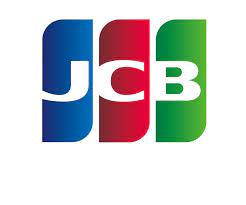How to test the fuel system pressure of the caterpillar 325C excavator
12.2021 Caterpillar ECM ECU Flash Files Full Set Download
The tools required to test the fuel system pressure are 1U-5470 engine pressure test assembly, 3Y-2888
connector and 3J-1970 O-ring seal. NOTE: Both the 5P-2720 Detector Engagement Set and the
5P-2718 Pressure Detector can be used with these tools. These additional tools will be used later when
installing the pressure probe. Fuel leaks or splashes on hot surfaces or electrical components can cause
a fire. Spills should be removed immediately. Keep all parts clean and free of contamination.
Contaminants can accelerate component wear and shorten their service life. Always be careful not to
lose fluid when inspecting, maintaining, testing, adjusting, and repairing this equipment. Suitable
containers should be prepared to collect the liquid before opening any box or disassembling any parts
containing liquid. All liquids should be handled in compliance with local regulations. The 1U-5470
engine pressure test assembly is shown in Figure 3-1-46. The 1U-5470 engine pressure test assembly
can be used to check the engine’s fuel pressure. There is a gauge in the tool set that records the
pressure
in the fuel manifold. The fuel return pipe is shown in Figure 3-1-47,
and the fuel pressure test is shown in Figure 3-1-48.
2023 CAT ET 2023A 2022A & 2019C Full Service Download and Installation Service
Whether under normal working conditions or under loaded working conditions, the fuel pressure should
be within the range of 400~525kPa; during low idle speed operation, the fuel pressure at the fuel filter
inlet should be within the range of 400~435kPa. If the pressure difference △P on both sides of the
filter CAT Caterpillar ET 4 Diagnostic Adapter Truck Diagnostic Tool-high quality
is ignored, the fuel pressure in fuel supply channel 1 should be equal. For a new fuel filter, the pressure
differential loss on both sides of it is usually 35kPa. If worn particles accumulate in the fuel filter, the
pressure difference across it will increase. If the filter becomes clogged, the fuel supply pressure may
drop to 69kPa before the driver notices significant power loss. If the fuel pressure is lower than normal,
it will cause cavitation and cause internal damage to the unit injector. The pressure difference on both
sides of the fuel filter should not exceed 69kPa. Pressure regulator 3 is mounted directly on the
cylinder
head. The pressure regulator is located at the fuel return port toward the rear end of fuel supply passage
1. The oil hole maintains the fuel pressure at low engine speeds.




